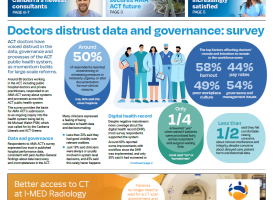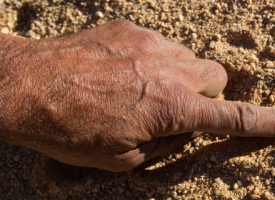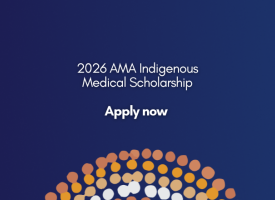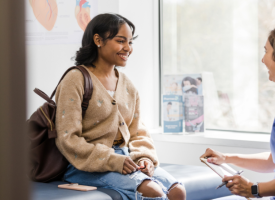Scholarship recipient champions culture in Indigenous healthcare
Myles McKenzie, one of three recipients of the 2025 AMA Indigenous Medical Scholarship, shares the inspiration behind his goal to become a psychiatrist.
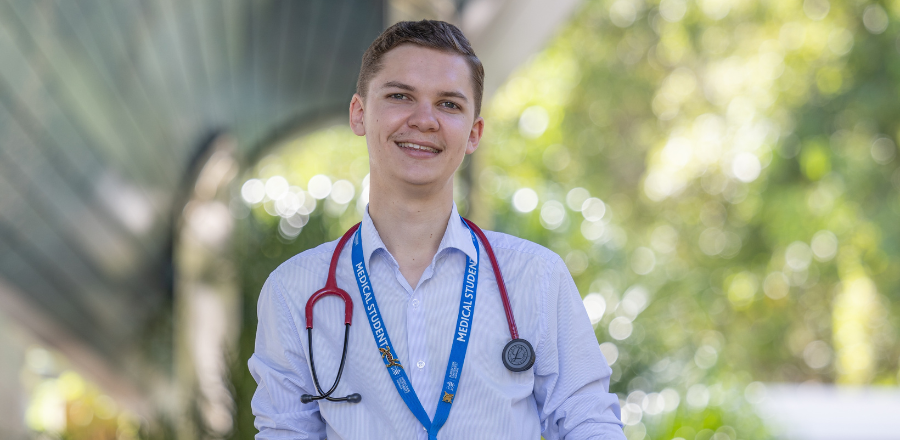
Image: Supplied
As Myles McKenzie sat in his local “men’s group” meetings, his eyes were opened to the systemic failures afflicting Aboriginal communities.
These failures became painfully clear as he listened to the stories of Aboriginal men who had committed serious criminal offences and were now seeking mental and spiritual rehabilitation.
Failures such as the lack of early intervention in cases of domestic violence, inadequate access to mental healthcare, and limited opportunities for quality education and employment were recurring themes.
Now 24, and a third-year medical student at James Cook University, Myles plans to pursue psychiatry to help address the gaps in mental health outcomes for Aboriginal and Torres Strait Islander peoples.
A proud Barundji man, he attributes his inspiration to study medicine to his “men’s group”. In Aboriginal culture, men’s groups are important gatherings run by Elders to help foster cultural connection and improve overall wellbeing.
By offering a safe space to discuss “men’s business”, these groups have untold benefits for young Aboriginal men.
Myles says policymakers can learn a great deal from these groups and how they place culture at the heart of everything they do.
“At the moment, we’re trying to mould a Western idea of mental health and mental illness and then apply that to a completely different population — one it wasn’t meant for. And it just doesn’t fit. It doesn’t work.”
Myles says it’s time to “bridge the gap” between what Aboriginal and Torres Strait Islander Elders are doing in the community and how we deliver medicine.
“It comes down to multifaceted problems that need to be addressed,” Myles says.
“The reason that men’s group was so significant in inspiring my medical career aspirations was because I saw the Elder working with these men through a cultural perspective — rebuilding their sense of spirituality. And what that did was essentially rebuild their identity and sense of purpose.
“When you use culture methods, they work. So why can’t I go into the medical field and do more of what I see my Elders doing in the community? Bridge that gap, if you will, between what Elders are doing in community and what we’re doing in hospitals — and somehow unite the two to start getting better outcomes for Aboriginal people.”
It is this fundamental shift in the way we think about healthcare for Aboriginal and Torres Strait Islander peoples that is so important to Myles.
He remembers how his grandmother was forced to leave her country in central Queensland — her spiritual and physical home — to receive treatment for cardiovascular disease. Her experience helped him realise Indigenous people are at a severe disadvantage in the current health system.
“It’s a model that not only my nana faced, but we see it in our broader healthcare system —where we need to take our patients from where they live in their communities and bring them to the health service, usually in a metropolitan city,” Myles says.
“When you actually sit down and look at the reality of what that does to our patients — and how ineffective that is — you realise we’ve got it all wrong.
“We need to flip that and bring our healthcare services to our patients.”
Myles acknowledges ongoing efforts to address this with mobile health services.
“We’re taking footsteps in the right direction, but it is a model that takes a lot of time to change, and it’s a model that is super important for Aboriginal people,” he says.
“Aboriginal people have deeply embedded cultural roots in their community, in their home, in their spirituality — all of which are embedded in their country.
“Taking someone from that country and then putting them in a whole new sterile environment and expecting that to be a healing environment, it’s just nonsense. It’s not going to work.”
Mental healthcare has been historically neglected for Aboriginal and Torres Strait Islander peoples. Myles says having more Indigenous psychiatrists is an important part of addressing this.
“We know that over a third of Aboriginal people experience some sort of mental health condition, and yet you can roughly count on one hand how many Aboriginal psychiatrists there are,” he says.
“Suicide has become the leading cause of death for Aboriginal children aged five to 17, so that is a big driver for me in pursuing psychiatry, because I know I can work with the mental health system from a cultural perspective to address those challenges.”
Speaking about the significance of the AMA Indigenous Medical Scholarship, Myles says it’s much more than just financial assistance.
“Having received this, it provides that sense of security and support, knowing I’ve got one of the most important medical organisations in the country supporting my goals and my aspirations to actually make those changes,” he says.
“Yes, it’s financial, but it’s more than that — it’s that sense of confidence and belief in myself that it provides, because I know that I can now say yes to a remote placement opportunity that comes up, I can say yes to a conference somewhere down south, and I can take on those excellent learning opportunities.”
Donate to the AMA Indigenous Medical Scholarship
Further reading:
‘Healing can grow from hardship’: Kayla’s inspirational journey to medicine
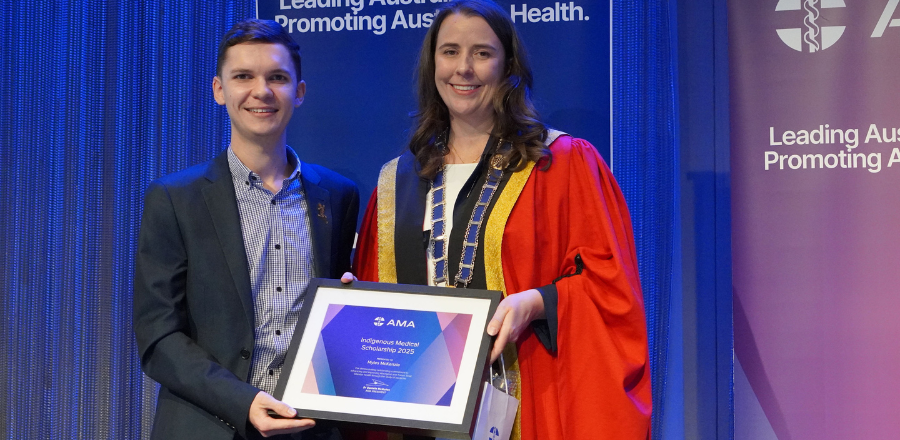
Myles McKenzie presented with the AMA Indigenous Medical Scholarship at the AMA25 National Conference in Adelaide, SA. Pictured with AMA President Dr Danielle McMullen.
